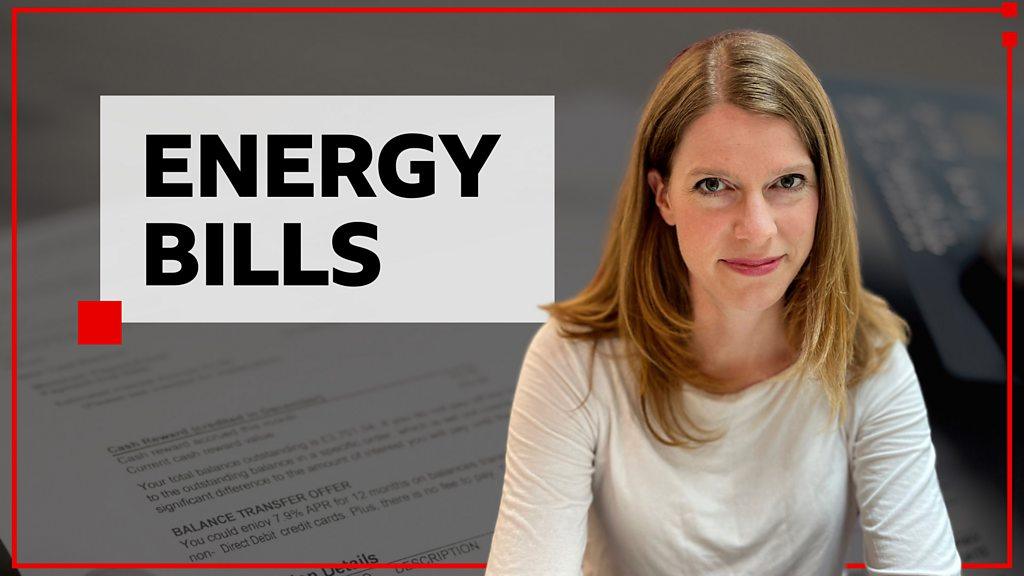Cost of living: Workers could be asked to layer up as bills soar
- Published
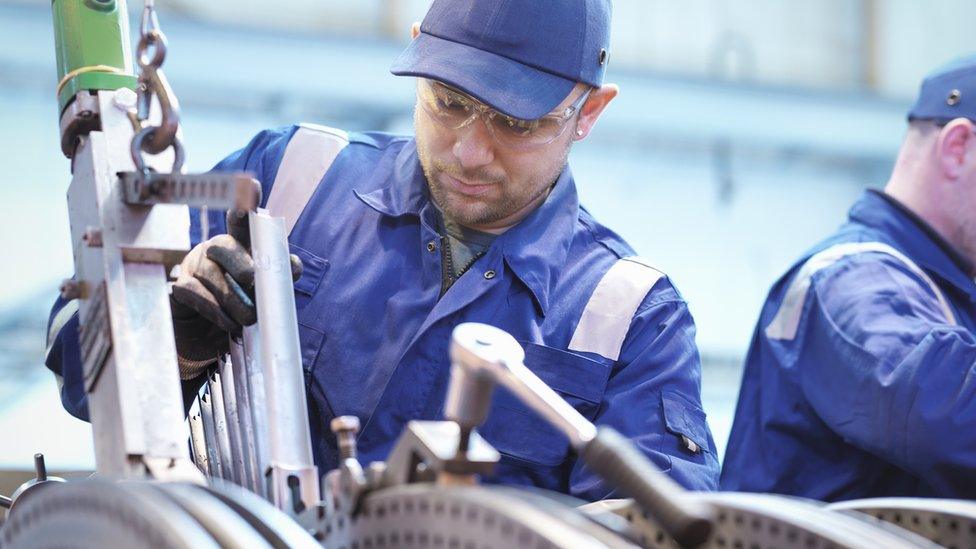
A metal spinning factory in Birmingham has seen bills rise by almost £600K a year (generic image)
Employees at a metal working factory could be asked to wear more layers to reduce heating costs, a boss said.
Tony Constance runs Stockfield Metal Spinners in Birmingham and said his latest energy quote was £734K a year, up from his usual annual rate of £135K.
As well as limiting heating costs, he said the firm would have to consider "many other" cost-saving measures.
Mr Constance has written to the government, joining a growing number of employers calling for support.
"We are facing a very serious crisis," he said.
"I'll say it's worse than the pandemic, because with the pandemic, you could see with vaccines an end. This one, no one can predict an end."
As well as asking workers to wear warmer clothes, the business is proposing more work during the nights.
There are no minimum or maximum temperatures set for workplaces, however government guidelines, external say it must be "reasonable" and suggest a minimum of 16C (61F), or 13C (55F) if employees are doing physical work.
Worried about energy bills? The BBC's Colletta Smith tells you - in a minute - about four discounts and payments that could help
The company in Balsall Heath has been operating for 75 years and makes spun metal parts, while Mr Constance also runs another engineering company in Derbyshire.
Last week, energy regulator Ofgem hiked the price cap on household bills by 80%.
Unlike households, however, businesses are not covered by a price cap, meaning bills are even higher.
"It's very difficult at this moment, because I don't know the extent of what's going to happen," Mr Constance said.
"We're facing increases of five or six times in our energy bills - that's going to be a very serious problem for millions of small businesses."

Many manufacturers are high intensity energy users and have seen bills rocket
Stephen Morley, the president of the Confederation of British Metalforming, based in West Bromwich, said he had not spoken to a single member who was not worried about the price rises.
"Unless the government does something, they won't survive," he said. "We could lose more companies through this than through Covid - it's that serious."
Mr Constance wrote to business secretary Kwasi Kwarteng outlining his concerns, saying across his businesses - which employ 50 people - he risks a loss of almost £300K a year, which is "not sustainable".
The employer said he had not yet had a response.
The government has previously said no new policies would be announced until the new prime minister was announced on 5 September.

Follow BBC West Midlands on Facebook, external, Twitter, external and Instagram, external. Send your story ideas to: newsonline.westmidlands@bbc.co.uk, external
Related topics
- Published31 August 2022
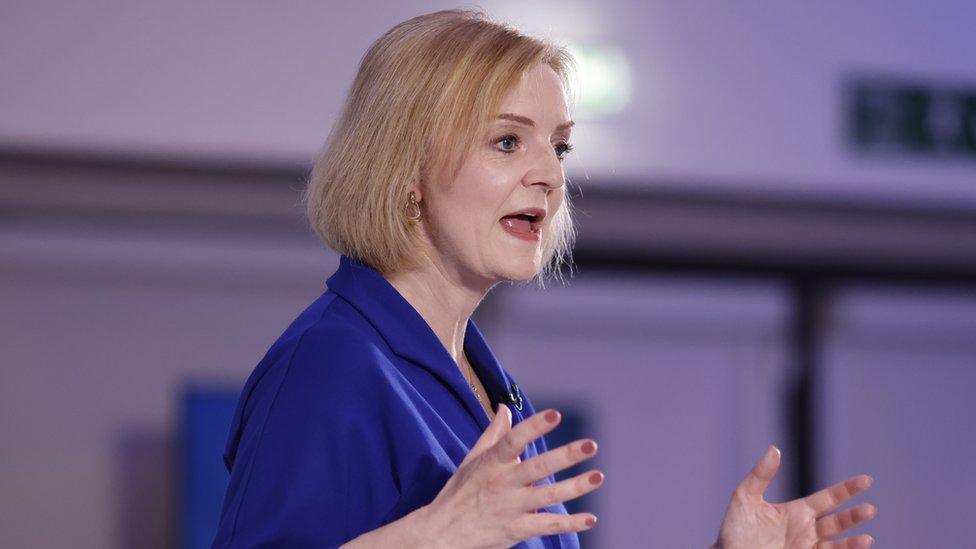
- Published31 August 2022
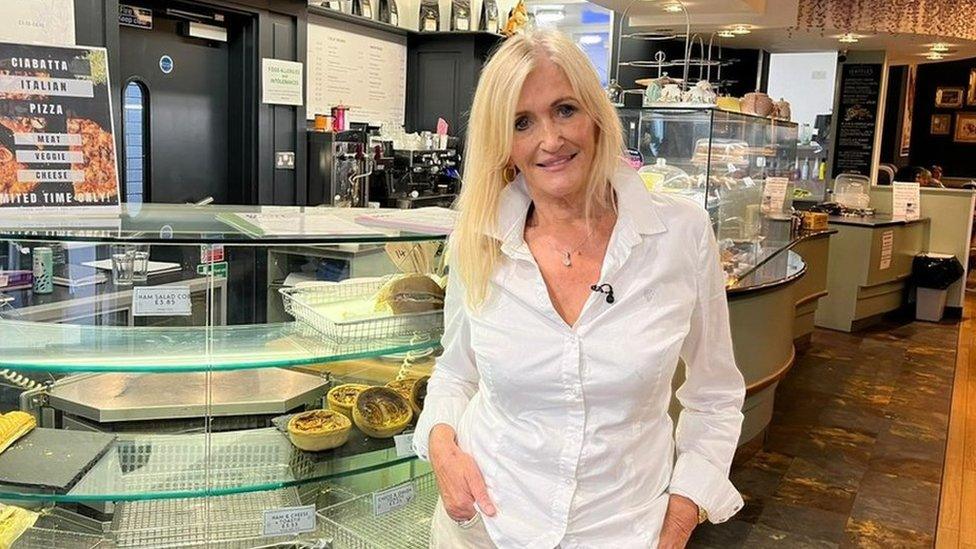
- Published31 August 2022

- Published30 August 2022
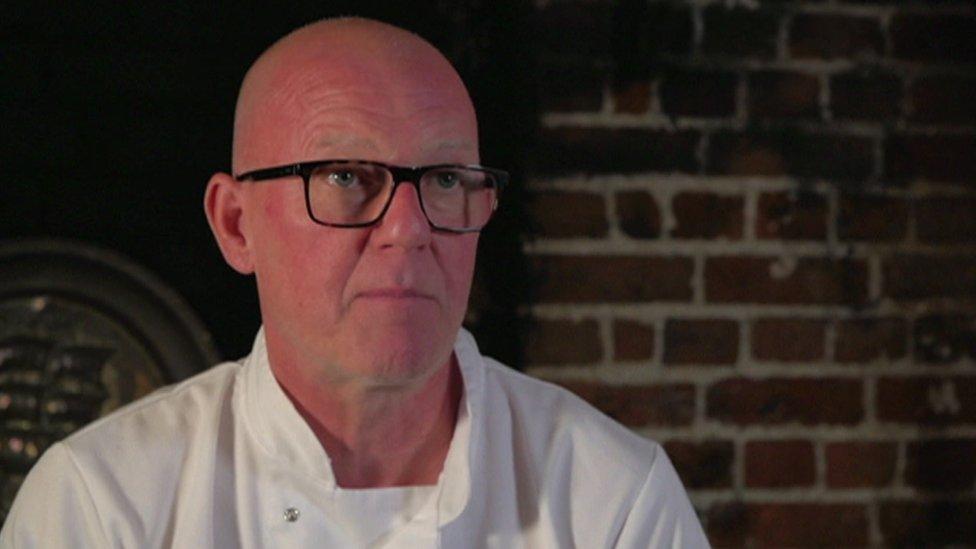
- Published29 August 2022

- Published29 August 2022

- Published26 August 2022

- Published26 August 2022
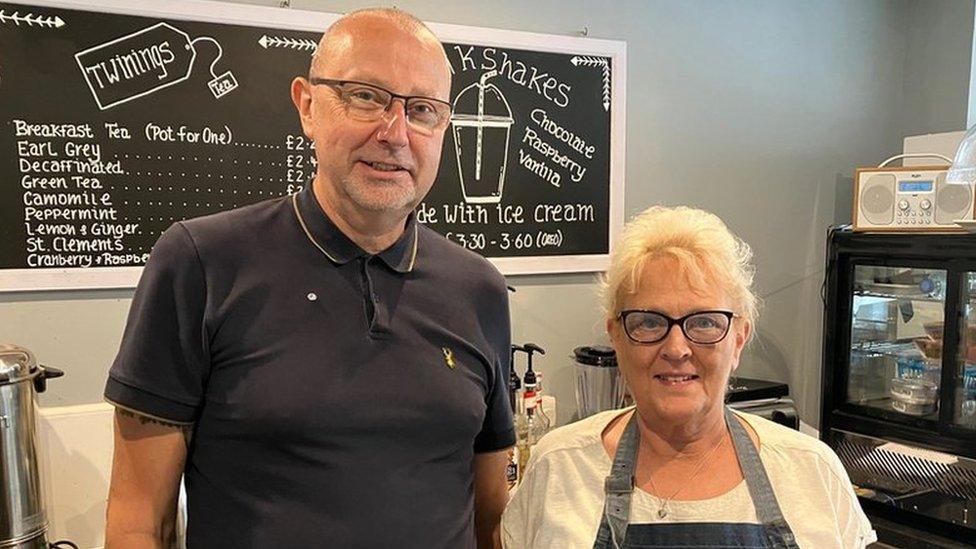
- Published26 August 2022
